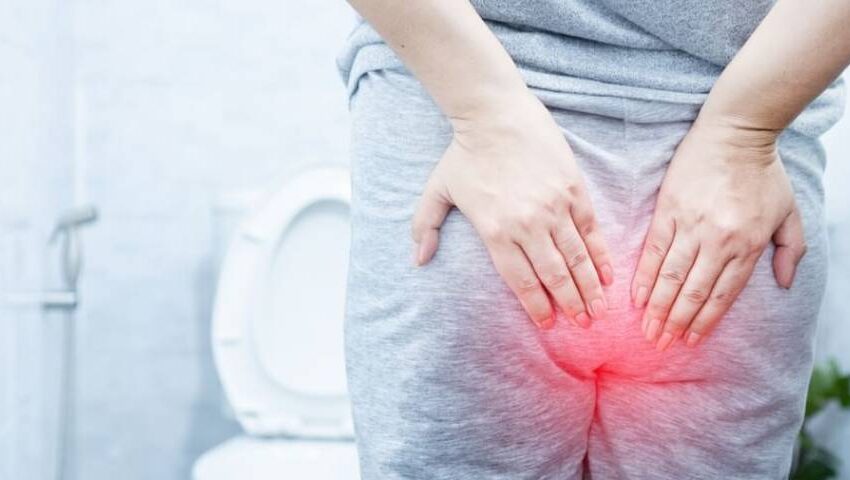
- 23/04/2025
- Kaizen Gastro Care
- 0 Comments
- Blogs
How to Prevent Hemorrhoids and Fissures Naturally
Hemorrhoids (also known as piles) and anal fissures are two of the most common anorectal conditions that people face, yet they are often ignored due to embarrassment or misinformation. At Kaizen Gastro Care Clinic, Dr. Samrat Jankar—one of the most trusted colorectal surgeons in Pune—frequently treats patients suffering from pain, bleeding, and discomfort caused by these conditions. While medical and surgical treatments are available, the good news is that both hemorrhoids and fissures can be prevented naturally with the right lifestyle and dietary habits.
In this blog, we will explore how to prevent hemorrhoids and anal fissures naturally, focusing on daily routines that promote optimal digestive and rectal health.
Understanding Hemorrhoids and Fissures:
Before diving into prevention, it’s important to understand what hemorrhoids and fissures are.
- Hemorrhoids are swollen veins in the rectum or anus that can cause bleeding, itching, and pain. They can be internal or external.
- Anal fissures are small tears or cuts in the lining of the anus, often resulting from passing hard stools. These tears cause sharp pain during bowel movements and may lead to bleeding.
Both conditions are commonly triggered by chronic constipation, straining during bowel movements, a sedentary lifestyle, and poor dietary habits.
Eat a High-Fiber Diet:
One of the most effective ways to prevent hemorrhoids and fissures is to keep your stools soft and regular. This can be achieved by boosting your daily fiber intake.
Include in your diet:
- Whole grains (oats, brown rice, whole wheat)
- Fruits (especially papaya, apple with skin, pears, berries)
- Vegetables (carrots, spinach, broccoli, okra)
- Legumes (lentils, beans, peas)
- Seeds (chia, flaxseeds)
Fiber adds bulk to your stool and softens it, reducing the need for straining. Aim for at least 25–30 grams of fiber per day.
Stay Hydrated:
Dehydration is a common but overlooked cause of constipation. Drinking sufficient water throughout the day helps in softening the stool and making bowel movements easier.
Dr. Samrat Jankar recommends:
- Drinking at least 8–10 glasses of water daily.
- Including fluids like buttermilk, coconut water, and clear soups in your diet.
- Avoid extreme caffeine and alcohol, which can dehydrate the body.
Avoid Straining During Bowel Movements:
Straining puts pressure on the rectal veins and anal lining, leading to the growth of hemorrhoids and fissures.
Natural prevention tips:
- Go to the toilet when you feel the urge—don’t hold it.
- Take your time but don’t sit too long on the toilet.
- Avoid reading or using mobile phones during bowel movements, as it increases time spent on the toilet and adds pressure.
Establish a Healthy Toilet Routine:
Keeping a regular bowel habit is crucial. Your body thrives on routine, and training it to go at a particular time can help regulate digestion.
- Morning time, especially after a warm glass of water or light stretching, is ideal.
- Practice deep breathing to relax pelvic muscles before bowel movement.
Exercise Regularly:
A sedentary lifestyle is a powerful contributor to constipation and poor circulation in the pelvic region, increasing the chance of both fissures and hemorrhoids.
Recommended activities:
- Brisk walking for 30 minutes daily
- Yoga poses like Pawanmuktasana, Malasana, and Vajrasana
- Mild stretching or home workouts
Exercise stimulates bowel movements, improves blood flow, and reduces pressure on rectal veins.
Avoid Heavy Lifting and Prolonged Sitting:
Prolonged sitting or heavy lifting can increase pressure in the lower abdomen and rectum, contributing to hemorrhoids.
Prevention tips:
- Use a standing desk or take breaks every 30–45 minutes if you are sitting at work.
- If lifting heavy objects, use the correct posture—bend your knees and not your waist.
- Use cushions or hemorrhoid pads when sitting for long hours.
Choose Natural Laxatives and Ayurvedic Support:
If constipation persists, opt for gentle, natural remedies rather than chemical laxatives, which can be habit-forming.
Natural options:
- Psyllium husk (Isabgol)
- Triphala powder
- Castor oil in small doses (consult a doctor)
- Warm ghee in milk before bedtime
These support smooth bowel movements and reduce strain.
Maintain Proper Anal Hygiene:
Poor hygiene can worsen symptoms or lead to infections.
Hygiene tips:
- Use soft toilet paper or wash with lukewarm water.
- Avoid using harsh soaps or scented products.
- After washing, pat dry gently with a soft towel.
You may also use a sitz bath to soothe irritation and stimulate healing.
Watch for Early Symptoms and Seek Timely Advice:
If you notice:
- Bleeding during bowel movements
- Pain or discomfort in the anal area
- Itching or swelling around the anus
Don’t ignore it. Early consultation can prevent complications and reduce the need for surgery.
Dr. Samrat Jankar and his team at Kaizen Gastro Care offer a range of modern diagnostic and treatment options—from conservative therapy to minimally invasive laser treatments for piles and fissures. But the goal is always to treat holistically, starting with prevention.
Conclusion:
Preventing hemorrhoids and anal fissures doesn’t need major changes—it just takes consistent healthy habits. A balanced diet, regular physical activity, hydration, and mindful toilet habits can go a long way in keeping your digestive and rectal health in check.
At Kaizen Gastro Care Clinic, Dr. Samrat Jankar emphasizes the importance of patient education and natural prevention strategies to avoid the pain and complications of anorectal diseases. If you are experiencing symptoms or want personalized guidance, don’t hesitate to book a consultation.
